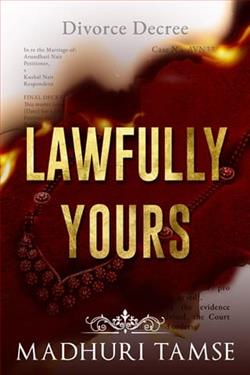Page 37 of Taken By the Shadow Prince
Ellis is caught up in giving me all the details about Niki, who he has described on multiple occasions as “gorgeous” and “swoonably tall.” Ellislovestall women. His cheeks are flushed—not out of embarrassment, because my twin isneverembarrassed, but out of excitement. It’s been a long while since I’ve seen him so... excited, especially about the prospect of dating.
“Seriously,” he says, “I don’t think I’ve ever been attracted to a ginger before.”
Isa snaps her head up. “What did you just say?”
Ellis flicks his eyes to her, then gives a grin that’s supposed to be apologetic, but really only looks like he’s fighting back a laugh. “I’m sorry, Isa. By the time you grew into yourself, you were too much like family for me to ever consider you attractive.”
She gapes. “Are you calling me ugly?”
Now, he does laugh. “No, I’m calling you my sister.” He blows her a kiss. “Besides, attractiveness doesn’t equate to beauty in all cases. I do think you’re pretty—objectively speaking.”
Isa lifts her chin a little and sighs. “Well, then. Thank you, Ellis. I suppose that as a designer, you’d know quite well what looks good and what doesn’t.” She winks.
“I’m also a soldier. So... not always.”
Now it’s Auley’s turn to be offended. “What’s that supposed to mean?”
Ellis groans, exasperated. “When did everyone in this room become so sensitive? You’re an exception, Auley. Good God. I’ve been helping you pick your outfits for as long as I’ve been here. Of course you’ve got great taste.” He opens his mouth to say something else, which would have probably found a way to offend Lillian, but Mair walks in with Leven right behind her.
Despite the fact that they’re no longer engaged for the politics of life and have managed to find love between them, Leven does not sit at her side. He remains in the seat directly across from her, between Auley and Lillian.
Mair gives me a smile as she slides into her own empty seat, right beside my chair. “Auley told me a few days ago that some of the spies he sent into rebel troops returned with information.”
I realize how long I’ve been gone, to not even have known that spies were sent at all. So much can change in a month, especially in times like this, when a country is on the brink of a civil war.
What’s going to change in five years?
“However,” Mair says, “Knowing that Mavey would be back soon, I thought it would be best to wait until she arrived to discuss it with the rest of you.”
Finch speaks up from his seat on the other side of Mair, his voice timid but commanding, all at once. Perhaps it’s because he’s older than us we listen so closely to his words, when he chooses to speak them. He’s not nearly as quiet as I am, but he tends to wait for the right moment to say something—and there are hardly ever such things as moments that are right. He says, “We missed you dearly, Mavey. These meetings have been nowhere near as progressive without you.”
Leven’s voice is soft as he says, “He’s right, you know. I think your silence keeps us grounded—probably because we know you see through us, and it’s terrifying.”
I offer him a smile in thanks. “Whose idea was it to send people undercover?”
“Mine,” Auley says. “I figured it would be best if we could at least figure outwhenthey were planning on striking—even vaguely. But everyone I sent volunteered.”
“How many?” I ask.
“How many went?”
I shake my head. “No. How many died?” Because I can see it. In the slower way he speaks, in the rigidness of his body. He lost people. And he feels guilty, even though theychoseto go.
“Four,” he says. “Four out of seven. We...” He blows out a breath and shakes his head. “We knew that sending seven spies at once would be unthinkable, to them. Unthinkable to anyone, actually. But three, sure. Four, sure. So... we sent more, soifany were caught, they’d think they got them all.”
Thatwas why this weighed on him so much. Because he’d all but known there would be casualties and had prepared for them. “Did they know that most of them would likely not come back?”
Another nod. “Yes. They knew everything. It would have been wrong to keep that from them.”
I’m tempted to reach across Ellis and grab his hand in mine. “Then their deaths are not on your hands.”
He nods, gives me a smile I don’t believe. “I know.”
He knows. It just doesn’t matter to him. They were still his men and women. No matter what, he’ll always hold himself responsible for their deaths.
Ellis and I suffer the same thing—though we did not know that our father was bringing us a cake, or that he’d fight to the death to hold on to it, we’ve never been able to forget that he was out there in the first place for us—to give us something so fleeting as happiness, for just one day.
No. You don’t forgive yourself for those things.















